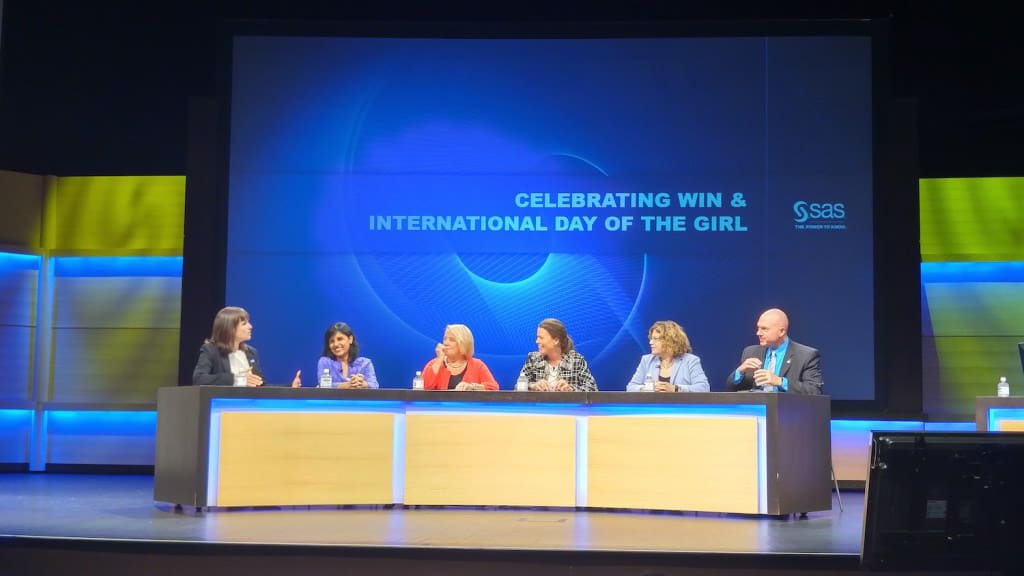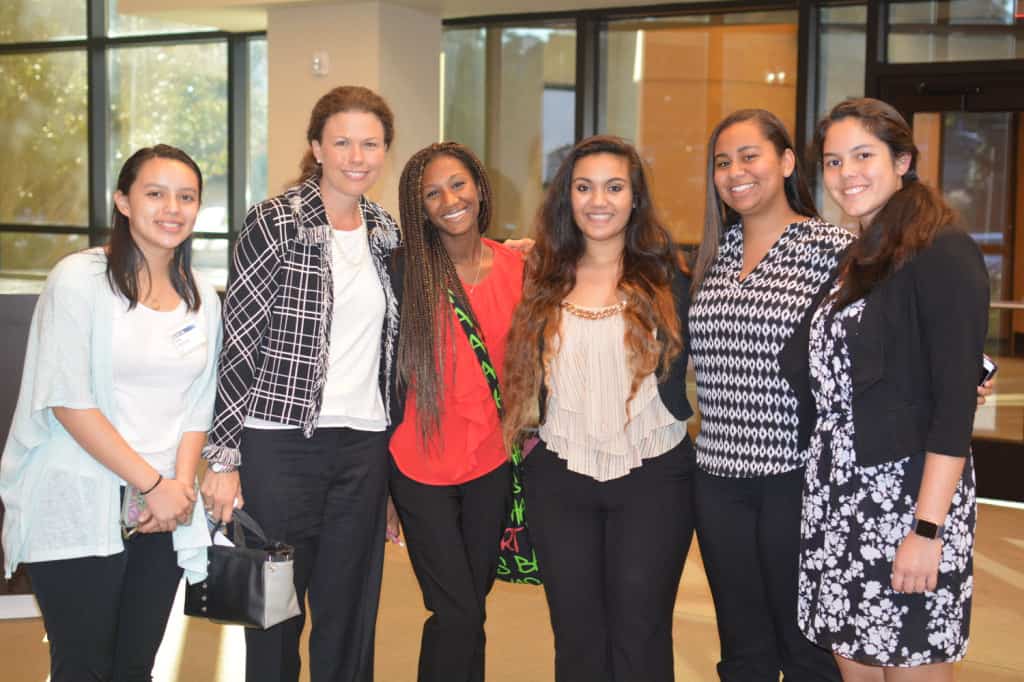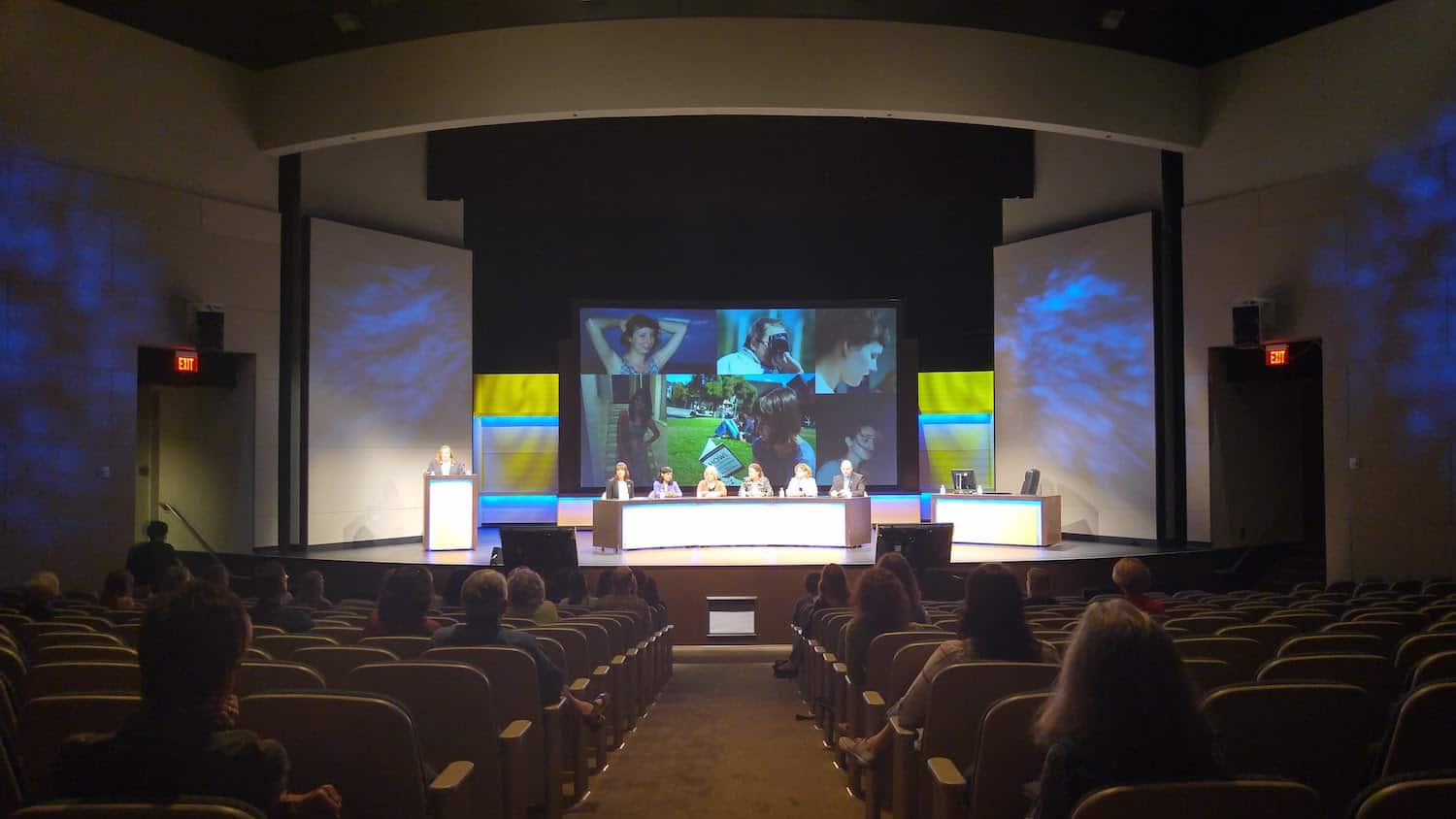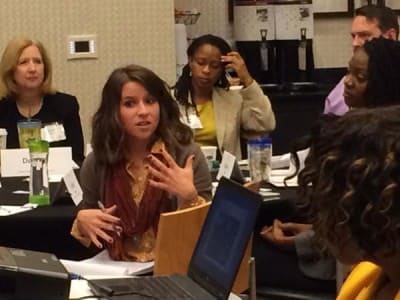October 11 was the Day of the Girl, a day set aside by the United Nations to honor girls’ rights and highlight ways to advance opportunities for girls around the world. This year, the Women’s Initiatives Network (WIN) at SAS Institute hosted a panel to discuss the right for girls to get a good education. The motto of WIN is “SAS women empowered, female students inspired.”
The panelists included:
Sunita Shetty, the senior manager of marketing operations for SAS India.
Carolyn Dickens, the president of Motheread
Mebane Rash, the CEO and editor-in-chief of EducationNC
Sherryl Broverman, an associate professor at the Duke Global Health Institute and founder of WISER International
Eric Hall, the president and CEO of Communities In Schools of North Carolina

What are the biggest barriers to education?
Gender is one. Race is another. Poverty is too. Worldwide, all of our children should have access to a high-quality education.
Just 52 percent of countries have universal primary education. Almost 100 million children will not complete primary education in 2015. We have gender parity in primary education in 69 percent of countries. At the secondary level, only 48 percent of countries will reach the goal of Education For All in 2015.1
We simply cannot be willing to relegate people — because of their gender, race, ethnicity, or socio-economic status — to a lesser life.
But even in countries where girls have access to education, the gender barriers persist through higher education and even into the professional world. Women are still only paid about 79 percent of what men are paid for the same job and only 4 percent of CEOs of the Fortune 500 companies are women.
What are the best ways to keep girls in school?
We have to understand why girls leave schools. When we look at dropout factors, we think of things that push and pull girls out of schools. For example, child marriage and early pregnancy pull girls out of school. Aspects of the school experience push girls out of school. “School has to be a welcoming place where girls feel they belong. They need to be safe,” said WISER’s Sherryl Broverman.
At EducationNC, we believe it’s important to ask the students themselves and honor their voices in the conversation. So we asked students: “How can we stop girls from dropping out?” Here’s what they had to say:
What are some immediate things we can do to improve education for girls?
“Circle in.” Raise awareness and support teachers. “If we want our students to be future leaders, we need to invest in people who know how to teach them,” said Sherryl Broverman.
Every girl that has access to an excellent teacher will have a better life.
Be role models. Pursue higher education. For the first time in history, more American women than men are college graduates. Choose careers dominated by men and challenge the status quo. Both men and women can live lives that model gender equality.
Be a mentor. Encourage authentic leadership and raise up the voices of our girls. We can learn a lot from girls. One of the best things about a mentoring relationship is that it goes both ways.
Are we heading in the right direction?
There is a push for gender equality worldwide. In India, Prim Minister Narendra Modi has a campaign called “Beti Bachao, Beti Padhao” (Save the Daughter, Educated the Daughter). As part of this, he asked parents to celebrate their daughters by tweeting photos of them using the hashtag #SelfieWithDaughter.
In Kenya, WISER is working to improve the health, education, and economic outcomes of girls. Their primary schools support both boys and girls so boys learn to respect girls’ abilities and create “gender allies.” The girls who attend the WISER Secondary School for girls are the first females in their families to attend secondary school.
Founded in North Carolina, Motheread works to improve literacy in mothers, fathers, and children. “A reading parent who didn’t finish school is still a valuable role model to their children,” said Carolyn Dickens.
“We need to create a culture in schools that drives good quality outcomes for all kids,” said Eric Hall.
We invited five high school girls from Enloe High School to join us for the panel. These girls are passionate about this issue, they took the initiative to come to the event, and they asked the hard questions. We can learn a lot from our students.

Here is what 11th grader Naomi Johnston had to say about the panel:
I had no clue what was going on in the world, in terms of education. Even with the experience of traveling to many places in Europe, I was very sheltered when it came to global education.
When sitting in that SAS conference room, listening to experts with real-life experience, my eyes were opened to a blinding light that I missed before. I knew that not everybody in NC goes to college, but I did not think of the reasons why someone wouldn’t.
I knew that people lived in poverty, but I said to myself, “Public school is free, so why wouldn’t people go?” I did not think about the more essential things in life like food, clean water, a home. It never crossed my mind that a girl would have to drop out of school to care for her younger siblings or get a job to pay the rent.
As for people (girls specifically) in foreign countries, such as India, it did not even occur to me that the son would be the priority over the daughter. Coming to these conclusions and realizations, it is clear now that identifying the issues is half the battle.
I do not know what I would do if I did not go to public school or get some kind of education. It is almost impossible for me to imagine a world where I do not go to college. Yet, women and girls around the world have to fight to get into any kind of school: primary, secondary, etc. They have to fight the expectations that people have of women, the “proper place” for women, and sometimes their parents’ wishes in order to break the mold society has created for them.
I now understand that being fortunate enough to have access to great education and support from my family does not mean that I can turn a blind eye to the injustices happening to girls and women around the world.
If anything, it means that it is my duty to help those in need in any way I can.
Whether it be mentoring a girl to help her achieve her goals, building an all-girls school in Africa, or creating a hashtag in India promoting gender equality. If more people like me better understood this topic that is so globally prevalent, they would probably be more than happy to promote change and shift the paradigm so that girls can be the best they can be.
You can watch the full panel here:
Editor’s Note: SAS Institute and the Goodnight Educational Foundation support the work of EdNC.




